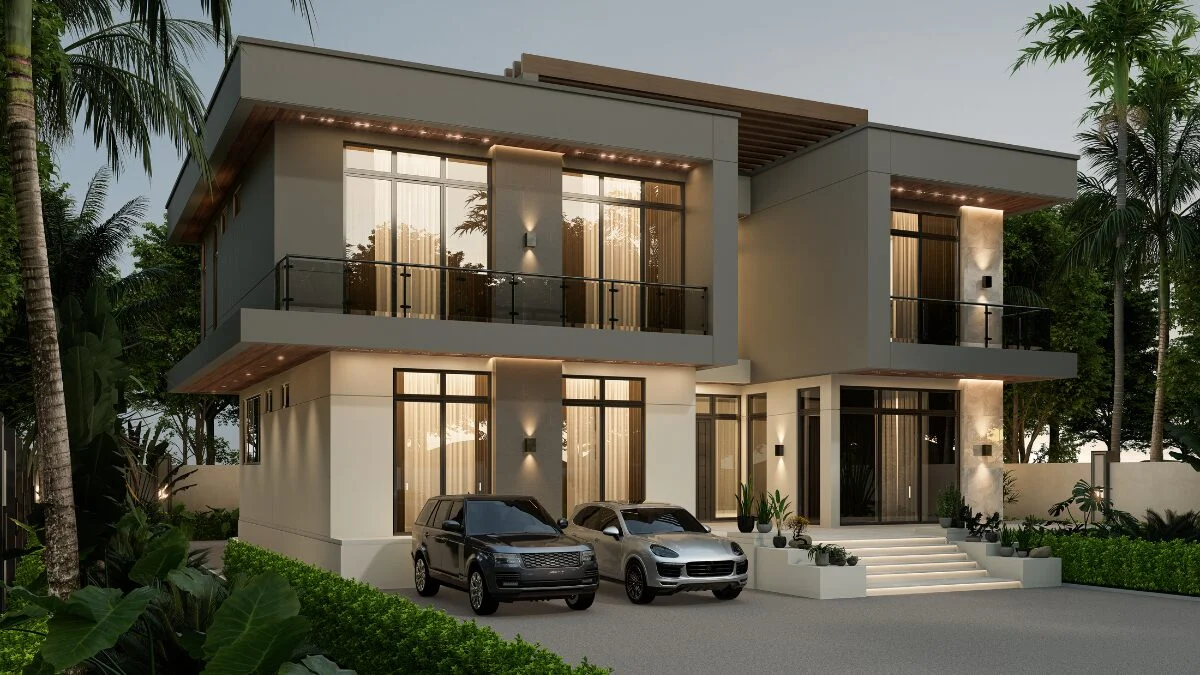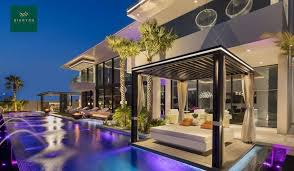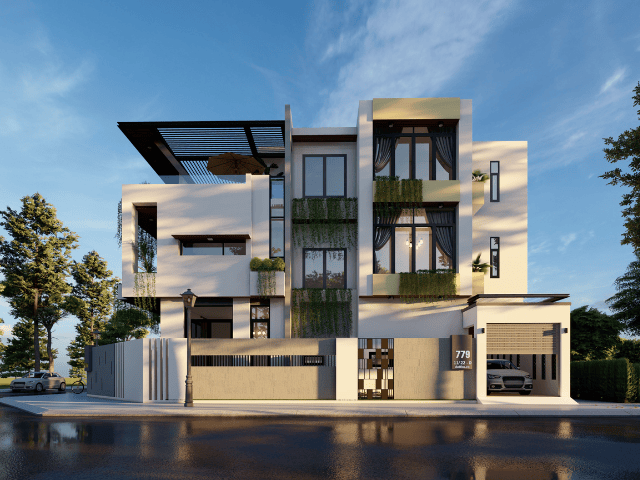Now Reading: Can Foreigners Own Villas in Dubai? What You Must Know in 2025
-
01
Can Foreigners Own Villas in Dubai? What You Must Know in 2025
Can Foreigners Own Villas in Dubai? What You Must Know in 2025

Table of Contents
Villas in Dubai: Dubai’s real estate market in 2025 is thriving, with 94,000 residential transactions worth AED 262.7 billion in H1, up 23.04% year-on-year. Foreigners are increasingly drawn to luxury villas in freehold zones, enabled by Decree No. 3 of 2006, offering 5–8% rental yields, 7–15% capital appreciation, and tax-free returns.
With a population of 4 million, 25 million annual tourists, and infrastructure like the Blue Line Metro, Dubai’s villas in areas like Palm Jumeirah and Dubai Hills Estate are popular for their exclusivity and lifestyle appeal. This guide explains whether foreigners can own villas in Dubai, key considerations, and steps to ensure a secure purchase in 2025.
Can Foreigners Own Villas in Dubai?
Yes, foreigners can own villas in Dubai’s designated freehold zones with full ownership rights, including perpetual ownership transferable to heirs, as established by Decree No. 3 of 2006. Unlike leasehold markets with time-limited tenure, freehold ownership allows non-residents and expatriates to purchase villas without restrictions, provided they are in approved areas.
Villas are available as ready properties or off-plan projects, with prices starting at AED 1.53 million in emerging areas like Dubai South and exceeding AED 25 million in luxury zones like Palm Jumeirah. Ownership grants the same legal protections as UAE nationals, with access to benefits like the Golden Visa for investments over AED 2 million.
Key Freehold Zones for Villa Ownership

Foreigners can buy villas in several freehold zones known for luxury, amenities, and investment potential:
- Palm Jumeirah: Iconic man-made island with beachfront villas (e.g., Palm Jebel Ali Villas, from AED 18 million), offering 5–7% yields and 8–12% capital gains.
- Dubai Hills Estate: A master-planned community with golf course villas (e.g., Address Villas – Hillcrest, from AED 3.5 million), yielding 5–8% and 7–12% gains.
- Emirates Hills: An exclusive gated community with custom villas (from AED 20 million), offering 5–7% yields and 10–15% gains.
- Jumeirah Bay Island: Ultra-luxury villas (from AED 30 million), yielding 5–7% and 10–15% gains, popular for privacy.
- Dubai South: Emerging area near Al Maktoum Airport with affordable villas (e.g., South Bay, from AED 1.53 million), offering 6–8% yields and 5–10% gains.
Verify freehold status via the Dubai Land Department (DLD) portal or title deed, which must specify “freehold” to confirm eligibility.
Key Considerations for Foreign Buyers
Foreigners must understand the following aspects to safely purchase and own villas in Dubai:
1. Legal Framework and Ownership Rights
- Freehold villas grant perpetual ownership, unlike non-freehold areas restricted to UAE/GCC nationals. Title deeds, issued by DLD, confirm ownership and are essential for legal protection.
- For off-plan villas (e.g., Palm Jebel Ali Villas), escrow accounts under Law No. 8 of 2007 protect deposits (e.g., AED 180,000 for a 10% deposit on a AED 1.8 million villa).
- A DIFC-registered will is recommended to avoid Sharia-based inheritance laws, ensuring villas pass to chosen heirs tax-free.
2. Investment Potential
- Rental Yields: Villas in luxury zones like Palm Jumeirah yield 5–7% (e.g., AED 1.75 million/year for a AED 25 million villa), while affordable areas like Dubai South yield 6–8% (e.g., AED 122,400/year for a AED 1.53 million villa).
- Capital Appreciation: High-end areas like Emirates Hills and Jumeirah Bay Island see 10–15% gains, driven by limited supply, while Dubai South offers 5–10% due to infrastructure like Etihad Rail.
- Golden Visa: Investments over AED 2 million qualify for a 10-year renewable residency visa for the buyer, spouse, unmarried daughters, and sons under 25 (fees: AED 9,884.75 primary, AED 5,774.50 per family member).
3. Costs and Fees
- DLD Transfer Fee: 4% of the purchase price, often split with the seller (e.g., AED 80,000 for a AED 2 million villa).
- Registration Fees: AED 4,200 for properties over AED 500,000, plus AED 540 knowledge fee and AED 250 ownership certificate fee.
- Mortgage Fees: 0.25% of the loan amount plus AED 290 (e.g., AED 2,790 for a AED 1 million loan). Bank valuation fees: AED 2,500–5,000.
- Agent Commission: 2% plus 5% VAT (e.g., AED 41,000 for a AED 2 million villa).
- Service Charges: AED 7–30 per sq. ft. annually (e.g., AED 35,000/year for a 5,000 sq. ft. villa at AED 7/sq. ft.).
- Municipality Housing Fee: 5% of annual rental value, typically paid by tenants but covered by owners if vacant (e.g., AED 10,000/year for a AED 200,000 rental value).
- Total costs: 6–8% of purchase price (e.g., AED 120,000–160,000 for a AED 2 million villa).
4. Financing Options
- Mortgages: Non-residents can secure 50–70% loan-to-value mortgages from UAE banks (e.g., Emirates NBD, HSBC) at 3–5% rates. Required documents: passport, 3–6 months’ bank statements, salary certificates, Al Etihad Credit Bureau report (AED 100).
- Off-Plan Payment Plans: Developers offer flexible plans (e.g., 60/40 or 80/20), requiring 10–20% deposits (e.g., AED 180,000 for a AED 1.8 million villa). Verify milestones via DLD reports.
- Use UAE-based forex services to lock in exchange rates for overseas funds, minimizing currency risks.
5. Risks and Mitigation
- Developer Delays: Off-plan villas face a 5–10% delay risk (2024 data). Choose reputable developers like Emaar or Nakheel and verify escrow compliance via DLD.
- Fraud: Scams (150+ cases in 2024) include fake listings. Work with RERA-registered agents (verify via Dubai REST app) and confirm title deeds or escrow accounts.
- Market Fluctuations: Oversupply in emerging areas like Dubai South may soften yields. Focus on established zones like Dubai Hills Estate for stability.
- Home Country Taxes: European buyers (e.g., UK, Germany) may face capital gains tax (18–28%) or rental income tax. Use UAE’s double taxation agreements (over 100 countries) and consult tax advisors to minimize liabilities.
Steps to Buy a Villa in Dubai as a Foreigner
- Research Freehold Zones: Target high-demand areas like Palm Jumeirah for luxury or Dubai South for affordability. Use DXB Interact, Property Finder, or Bayut for listings.
- Engage Professionals: Hire RERA-registered agents and legal advisors to review SPAs and ensure compliance with DLD and RERA regulations.
- Verify Developer and Property: Check developer ratings (e.g., Emaar, Nakheel) and escrow accounts for off-plan villas via DLD. Request NOCs for ready villas.
- Secure Financing: Obtain mortgage pre-approval or leverage off-plan payment plans. Provide required documents and budget for fees.
- Sign SPA and Deposit: Sign the sales purchase agreement and pay 10–20% deposit (e.g., AED 350,000 for a AED 3.5 million villa). Register SPA with DLD (AED 1,000–2,000).
- Complete Purchase: Pay the remaining balance, 4% DLD fee, and registration fees at a DLD office or Trustee Centre to obtain the title deed.
- Post-Purchase Management: Register utilities with DEWA (AED 1,000–2,500 setup fee). For rentals, use Ejari for long-term leases (AED 220) or obtain a holiday home permit for short-term rentals (e.g., Airbnb in Palm Jumeirah). Hire property management firms for non-residents.
Strategic Tips for Foreign Buyers

- Target villas in Dubai Hills Estate or Dubai South for affordability and Golden Visa eligibility (AED 2 million+).
- Budget 6–8% of purchase price for fees (e.g., AED 120,000–160,000 for a AED 2 million villa) and 1–2% annually for maintenance.
- Verify developer reliability and escrow accounts via DLD to mitigate risks like delays or fraud.
- Optimize rentals via Airbnb in luxury zones (5–7% yields) or long-term leases in affordable areas (6–8%), using the Dubai Smart Rental Index 2025.
- Monitor infrastructure updates (e.g., Blue Line Metro, Etihad Rail) via the RTA Dubai App for appreciation potential.
- Consult tax advisors to navigate home country tax liabilities and leverage UAE’s double taxation agreements.
- Use a DIFC-registered will to ensure inheritance aligns with personal wishes, avoiding Sharia law.
Conclusion
Foreigners can confidently own villas in Dubai’s freehold zones in 2025, enjoying full ownership rights, 5–8% rental yields, 7–15% capital gains, and tax-free returns. Areas like Palm Jumeirah, Dubai Hills Estate, and Dubai South cater to diverse budgets, with Golden Visa benefits for investments over AED 2 million.
By verifying freehold status, engaging RERA-registered professionals, and leveraging DLD tools, buyers can mitigate risks like fraud or delays. With strategic planning, including financing and market monitoring via DXB Interact and Bayut, foreigners can secure luxury villas in Dubai’s stable, regulated market, blending financial returns with an elite lifestyle.
read more: Top 5 Reasons Why Foreigners Are Investing in Dubai Property in 2025



















